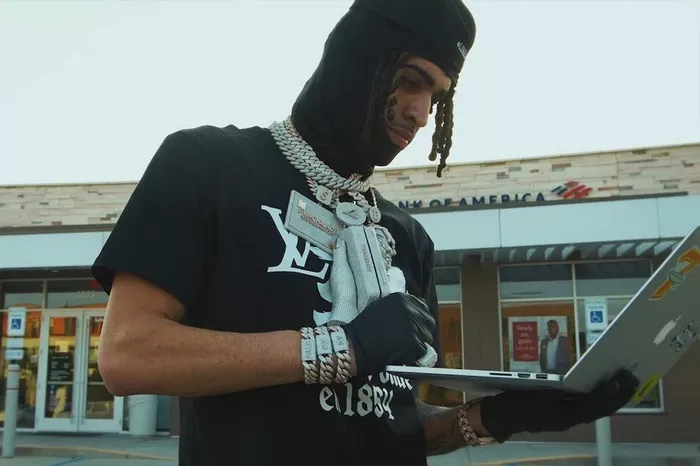Rap Music has been a prominent genre in the music industry for decades. With its roots in African and African-American communities, it has evolved into a global phenomenon that transcends boundaries of language and culture. While rap music has garnered immense popularity and critical acclaim, it has also faced its fair share of controversy and criticism. One of the most persistent debates surrounding rap music is whether it promotes violence. In this article, we will delve into this contentious issue, exploring the various arguments and perspectives surrounding the influence of rap music on violence.
The Evolution of Rap Music: From the Streets to the Mainstream
Rap music, often characterized by its rhythmic and poetic lyrics, emerged in the Bronx, New York, in the 1970s. It was initially a form of expression for marginalized communities, providing a platform for individuals to share their experiences, struggles, and aspirations. As rap music gained popularity, it transitioned from the underground scene to the mainstream, becoming a multi-billion-dollar industry.
Rap Music’s Powerful Storytelling
Rap music is renowned for its storytelling capabilities. Artists use their lyrics to narrate tales of life in their neighborhoods, addressing social issues such as poverty, inequality, and racial discrimination. Many argue that rap music serves as a reflection of the harsh realities faced by these communities, shedding light on issues that are often overlooked by mainstream media.
Lyricism and Artistic Expression in Rap Music
One of the key elements of rap music is its lyrical complexity. Rappers are celebrated for their ability to craft intricate verses, clever wordplay, and metaphors. These lyrical skills are often showcased in rap battles and freestyle sessions, where artists engage in friendly competitions to demonstrate their verbal prowess. While rap music may contain violent themes, it is essential to distinguish between artistic expression and promotion of violence.
The Role of Context in Interpreting Rap Lyrics
To understand the impact of rap music on violence, it is crucial to consider the context in which lyrics are written and performed. Many rap artists use hyperbolic and metaphorical language to convey their messages. What might appear as an endorsement of violence to some can be seen as a creative expression of frustration, anger, or resistance to oppression by others. The interpretation of rap lyrics is highly subjective and can vary widely among listeners.
The Controversial Aspect of Gangsta Rap
Within the rap music genre, “gangsta rap” has been a subgenre that has attracted significant attention for its explicit and often violent content. Artists in this subgenre frequently rap about street life, criminal activities, and conflicts. Critics argue that gangsta rap glamorizes violence and criminal behavior, potentially influencing impressionable listeners.
Impact on Youth and Vulnerable Audiences
One of the central concerns regarding the influence of rap music on violence revolves around its effect on young and impressionable audiences. It is undeniable that rap music has a substantial following among teenagers and young adults. Some studies have suggested a correlation between exposure to violent rap lyrics and aggressive behavior in adolescents, sparking concerns about the potential negative influence on vulnerable demographics.
Rap Music as a Reflection of Society
Proponents of rap music argue that it functions as a mirror reflecting the societal issues that contribute to violence. Instead of promoting violence, they contend that rap music highlights the need for social change and justice. By addressing these issues openly, rap music may serve as a catalyst for important conversations about violence, inequality, and systemic injustice.
The Responsibility of Artists and the Industry
The role of rap artists and the music industry in shaping the impact of rap music on violence cannot be overlooked. Some artists have taken a stance against promoting violence and have used their platform to advocate for positive change in their communities. Additionally, the industry itself has a responsibility to promote responsible and ethical content.
Parental Responsibility and Media Literacy
In the ongoing debate about rap music and violence, the role of parents and guardians is crucial. It is essential for parents to be actively involved in their children’s media consumption and engage in open dialogues about the content they are exposed to. Media literacy programs can also help young listeners critically evaluate the messages conveyed in rap lyrics and other forms of entertainment.
Conclusion
In conclusion, the relationship between rap music and violence is undeniably complex. While there are arguments suggesting that rap music can promote violence, it is equally valid to view rap as a form of artistic expression and social commentary. Ultimately, the impact of rap music on violence is influenced by various factors, including context, interpretation, and individual susceptibility.
Rap music’s power lies not only in its ability to entertain but also in its potential to provoke thought, raise awareness, and inspire change. It is essential to approach this debate with nuance, recognizing that rap music, like any other art form, can be both a reflection of society’s ills and a catalyst for positive transformation. As this discussion continues, it is imperative that we promote responsible consumption of rap music and engage in constructive conversations about its influence on violence in our communities.

